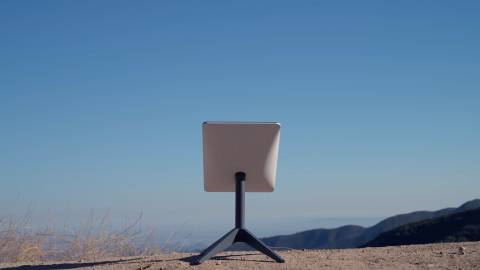SpaceX’s next major step for Starlink is to launch 30,000 upgraded satellites to improve speed and capacity on the internet system. But you might be wondering what this means for existing Starlink hardware. Will the new satellites render the existing dish equipment obsolete?

The good news is that the second-generation satellites will remain compatible with current Starlink equipment. The company confirmed this in a new document that outlines SpaceX’s approach to preventing Starlink satellites from interfering with astronomy.
“SpaceX’s second-generation satellites will add even more capacity to the Starlink network and connect more people in more places. All user terminals that customers already have are capable of connecting to both first- and second-generation satellites,” SpaceX wrote in the document, which was posted on the official Starlink website.
So users probably don’t need to worry about paying to upgrade their $599 Starlink dishes — at least in the near term. The company has quietly pointed out that existing Starlink dishes will one day lose support. “Like other novel technology products, the Starlink Kit will eventually become technologically obsolete,” the company says in the official specifications for the equipment.
“From time to time, customers may need to purchase a newer model for optimal Services,” the specifications add. As a result, Starlink subscribers might need to pay for a substantial upgrade in the future when SpaceX’s long-term goal is to supply 1Gbps and 10Gbps downloads speeds over the service.
In the meantime, SpaceX continues to push the FCC to grant approval for the second-generation Starlink satellites. The company is hoping to use its upcoming Starship craft to launch the second-gen satellites as soon as this year, but some of SpaceX’s competitors have been opposing the plan, which calls for expanding the existing Starlink constellation by 10 times.
